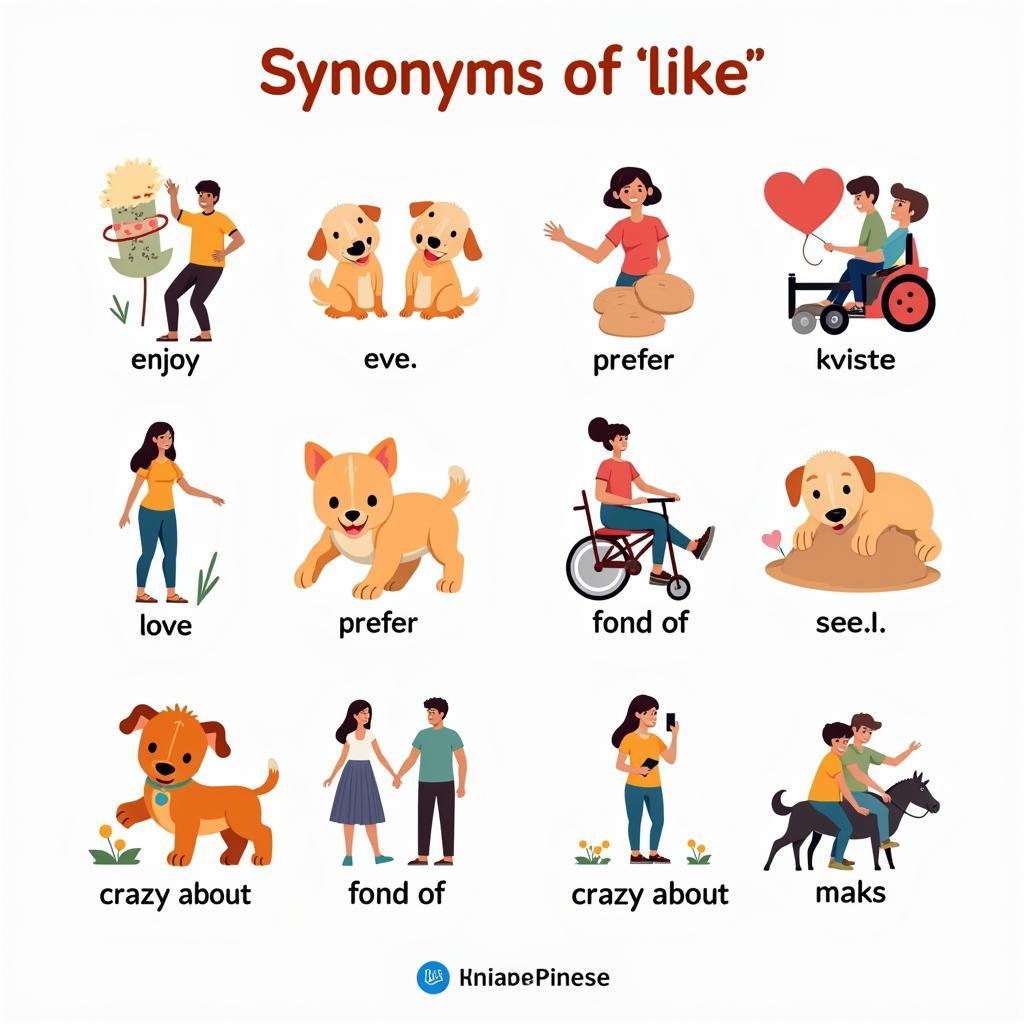“Ưa thích” in Vietnamese translates to “like” or “prefer” in English, depending on the context. It expresses a feeling of enjoyment or a greater inclination towards something compared to other options. Understanding how to express “ưa thích” in English opens up a world of possibilities to share your passions and preferences with others.
 The Word "Like" in English
The Word "Like" in English
Saying “Like” in Different Ways
English offers a variety of ways to convey the meaning of “ưa thích,” each with its own nuance:
- Like: This is the most common and straightforward way to say “ưa thích.”
- Example: “I like listening to music.”
- Enjoy: Similar to “like,” but often implies a stronger sense of pleasure.
- Example: “I enjoy reading books in my free time.”
- Love: Expresses a much stronger feeling of liking, bordering on passion.
- Example: “I love playing basketball – it’s my favorite sport!”
- Prefer: Use this when you are choosing something over another option.
- Example: “I prefer tea to coffee.”
- Fond of: A more formal way to say you like something, often used for activities or things.
- Example: “I’m quite fond of classical music.”
- Crazy about: This informal phrase expresses a very strong liking for something.
- Example: “She’s crazy about cats.”
 Different Ways to Say "Like"
Different Ways to Say "Like"
Using “Ưa Thích” in Conversations
Knowing how to say “ưa thích” in English allows you to engage in conversations about your hobbies, interests, and preferences. Here are some examples:
- Talking about hobbies:
- “What do you like to do in your free time?”
- “I’m really into photography these days.”
- Expressing preferences:
- “Would you like coffee or tea?”
- “I’d prefer tea, thank you.”
- Sharing opinions:
- “What kind of music do you like?”
- “I’m a big fan of rock music.”
Expanding Your Vocabulary
As you become more comfortable with English, you can explore more expressive ways to talk about your “ưa thích”:
- To be keen on: “I’m keen on trying that new restaurant.”
- To be a fan of: “I’m a big fan of your work.”
- To have a soft spot for: “I have a soft spot for romantic comedies.”
- To take a liking to: “I’ve really taken a liking to this city.”
Conclusion
Learning how to express “ưa thích” in English not only enhances your language skills but also opens doors to deeper connections and shared experiences. From casual conversations to expressing heartfelt passions, mastering this simple yet powerful concept empowers you to communicate your true self with confidence and authenticity.
Don’t hesitate to use these phrases to tell others about what you “ưa thích” – you might be surprised by the connections you make and the conversations you spark!